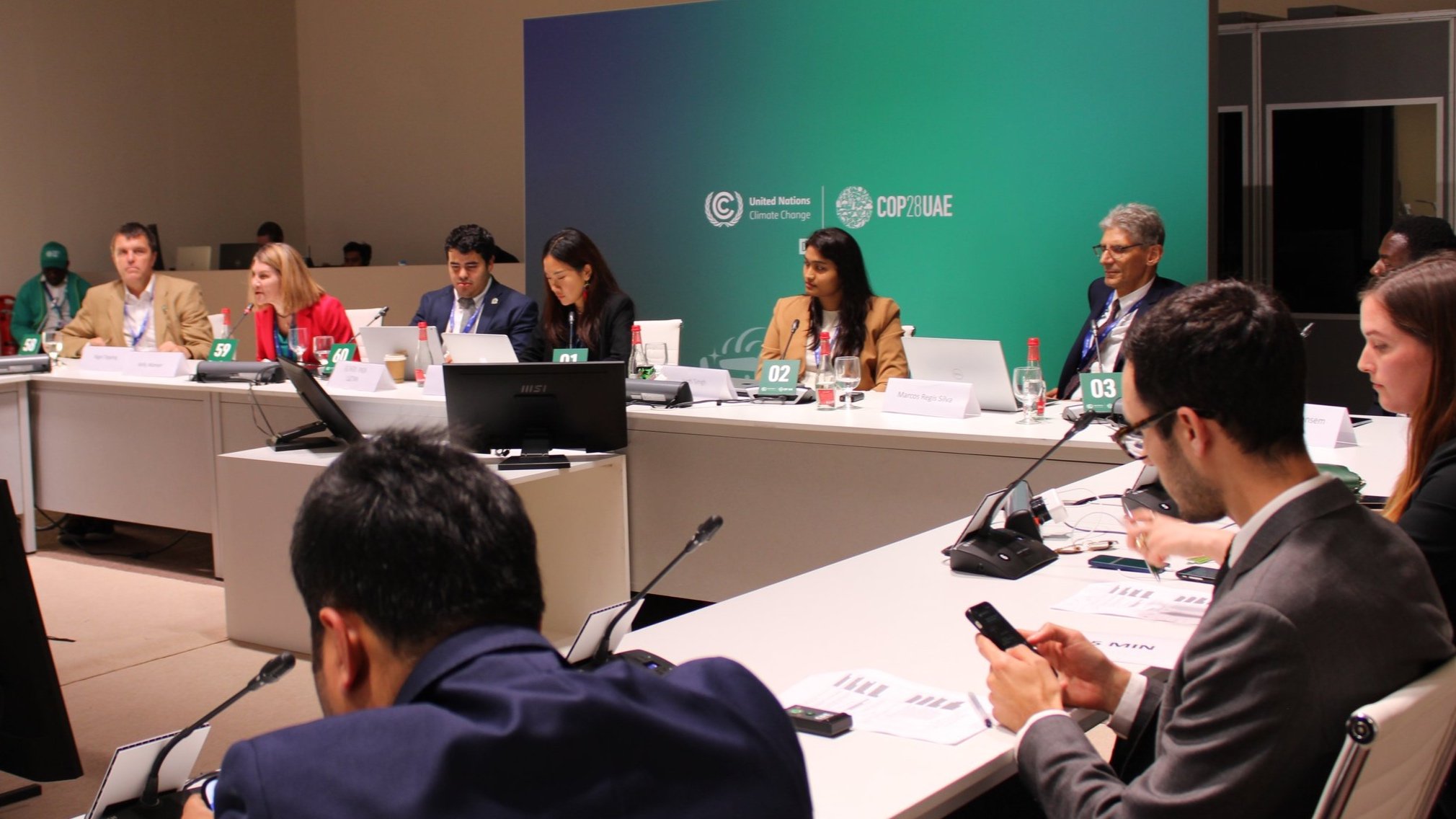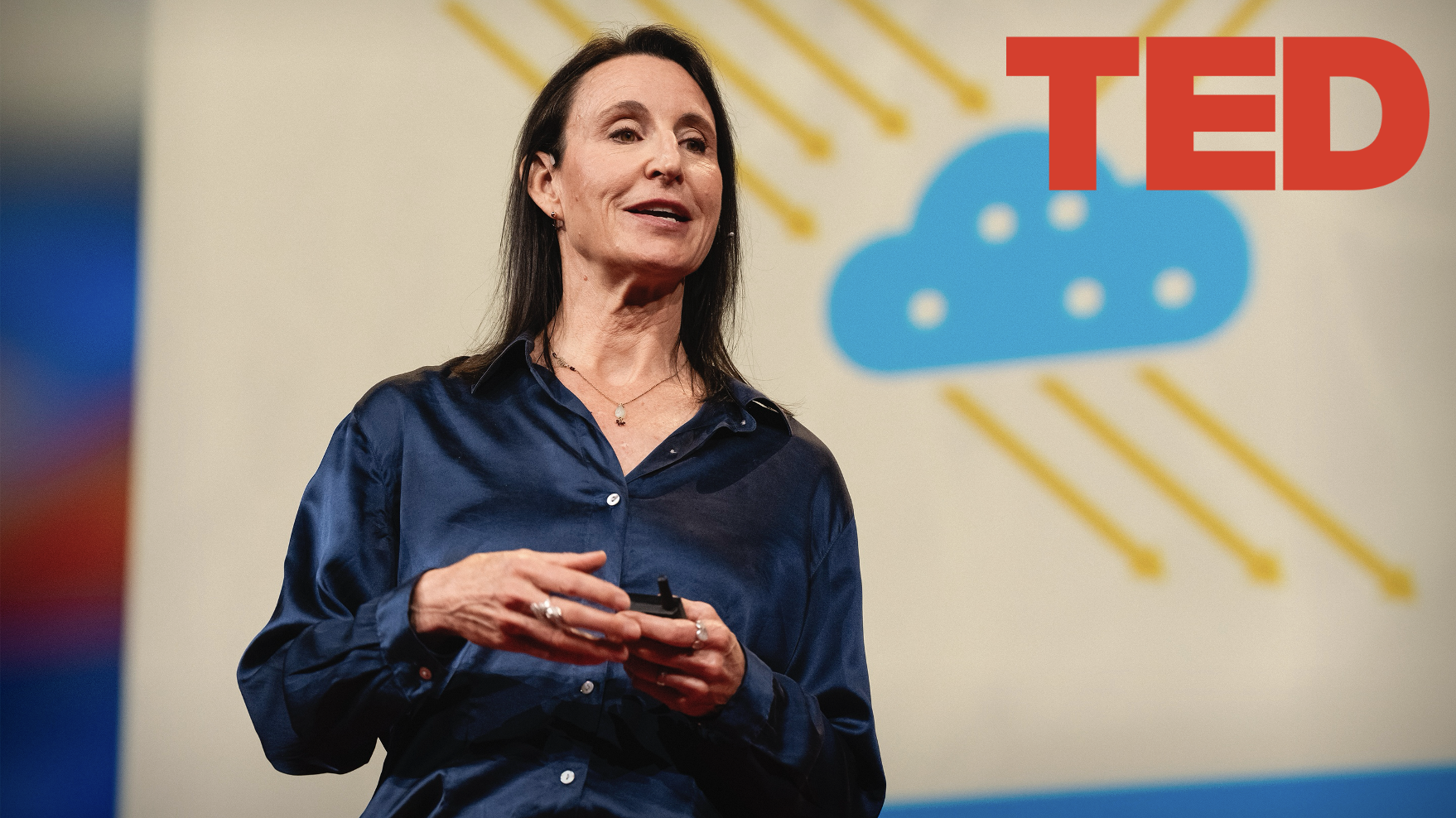SilverLining Spotlight: COP28
Dear Friends,
Emerging from COP28, the world is at a pivotal moment. Progress was made, including major commitments to reduce the super-polluting greenhouse gases that cause exorbitant near-term warming and commitments for Loss and Damage funds to help developing countries adapt to the impacts of warming that they did not cause. But as the climate experiences record extremes and approaches dangerous thresholds for warming, enormous work remains. With increasing acknowledgement that targets cannot be met, we now have a moral imperative to invest in research on climate interventions to assess their potential to reduce harm.
In this context, SilverLining called for concerted research on the potential for rapid climate interventions to enhance safety for people and natural systems and a $1 billion fund to provide equitable access to resources for climate impacts research in developing countries to address critical north-south inequities in decision-making and capacity for climate response.
In support of this, SilverLining hosted a panel (“Bridging the Research Gap”) with the UN High-Level Champions (click and scroll to Dec 8) on the vital need for funding and computing capacity for climate research in the regions most vulnerable to climate impacts. Overall, SilverLining team hosted and was part of a record number of dialogues on climate intervention throughout COP28. Our full statement on the climate summit is available here. We are pleased to share with you some details of our efforts and experiences below.
Best regards,
Kelly Wanser
Executive Director, SilverLining
COP28 Takeaways
At COP28, milestone agreements were reached on reducing methane emissions through the Global Methane Pledge, funding commitments for Loss and Damage, and a Global Stocktake focusing on a transition to clean energy and achieving net zero emissions by 2050. SilverLining published a statementwelcoming this progress on emissions reduction, equity and resilience in areas of high importance to improving safety in the near-term, but our statement recognizes that more work is required to best protect people and natural systems from catastrophic harm, including research on climate intervention.
The SilverLining team was on the ground throughout COP28. Our events covered a wide range of topics including: addressing the role of research, equity, and justice in assessing near-term climate risks and climate interventions, the importance of youth leadership, and the science of the cooling effects of pollution and intervention. Our events were hosted alongside the UN Climate Change High-Level Champions, the IAI, and youth organizations such as Operaatio Arktis, Green Africa Youth Organization and others in SilverLining's Global Young Leaders Initiative.
The Global Young Leaders Initiative organized a youth-focused event at the Climate Live pavilion with our team of young climate leaders from Green Africa Youth Organization, Arab Youth Climate Movement Qatar, YOUNGO, Sustenta Honduras, Sustainability Week Pakistan and Operaatio Artktis on 1.5C and climate intervention
Near-Term Climate Risk and Intervention Research at COP28
Discussion of climate interventions at COP increased exponentially since last year. In the Blue Zone, two treaty bodies (the Montreal Protocol and the Inter-American Institute for Global Change Research or IAI), multiple pavilions run by national governments, and several civil society organizations hosted events focused on climate interventions like solar radiation modification. Youth and Global South perspectives on climate intervention research saw increased attention in these discussions. SilverLining hosted several panels on climate intervention, including standing room-only events.
Perspectives on Equity and Climate Research at COP28
COP28 highlighted a pressing issue: the stark inequity in climate research funding and technology capacity between developed and developing countries, particularly in regions most vulnerable to climate impacts. This theme was central to the "Bridging the Research Gap" Implementation Lab organized by SilverLining and hosted by the High Level Champions together with Nigel Topping (click and scroll to Dec 8). The event illuminated how disparities in technological and financial resources hinder climate adaptation and disaster risk planning and equitable participation in decision-making on global responses to climate change. It highlighted how a Climate Research for All Fund and Cloud for Climate Initiative might democratize climate science by enhancing research infrastructure and capacity in the Global South. (View the full session here.)
Intergenerational Dialogue
During the first week of the conference, SilverLining hosted a reception that brought together experts and young leaders for a meaningful discussion on near-term climate risks and potential interventions. The event, benefitting from insights from climate scientist Piers Forster and Sarah Doherty, delved into the challenges and realities of near-term climate risk and rapid climate intervention strategies. This intergenerational dialogue brought together young climate leaders to explore the realities of rapid climate interventions and the escalating risks in a year marked by unprecedented warmth.
More information on SilverLining’s COP28 events is available on our website. We also have a public photo album here.
SilverLining Executive Director Kelly Wanser speaking on policy and governance of emerging options for addressing near-term climate risks at the pavilion of UAE, the host country of COP28, at a panel on rainfall enhancement.
New Publications
A series of recent publications point to the importance of research on climate interventions to support informed decision making, considerations of equity, and an ethical response to climate change. The UNESCO World Commission on the Ethics of Scientific Knowledge and Technology released a reportduring COP28 calling for scientific research on climate interventions. A recent editorial in Oxford Open Climate Change calls for more information—and research—to avoid making “inadequate decisions.” Another paper in One Earth calls for “a global network of climate action research centers” as a model for a global research initiative into solar climate intervention.
Looking Ahead
There has been growing momentum for research into climate intervention throughout 2023. Acknowledging the severe threat posed by warming, the United Nations Environment Programme, the Montreal Protocol Ozone Assessment, UNESCO, the European Commission and the United States government all issued official publications recommending research on the most promising rapid form of climate intervention, reflecting sunlight from clouds and particles in the atmosphere, sometimes called solar radiation modification.
In addition, the World Climate Research Programme, an international program that helps to coordinate global climate research that is housed in the WMO, launched a Lighthouse Activity on climate intervention and at COP28, youth leaders from around the world called for action on climate intervention research.
2024 will be a critical time for international dialogue and scientific progress on climate intervention research as we look ahead to COP29.
From Our Team to You
We are fortunate to be able to bring global youth leaders, scientists, and our own policy experts to COP to engage in dialogue and support policy action. We deeply appreciate your support in our efforts to promote a safe near term climate and equitable and effective decision-making to achieve it.
Our team on the ground at COP28 (from left to right): Aarushi Shah, Joshua Amponsem, Ricardo Pineda Guzman, Lydia Dai, Kelly Wanser, Nico Esguerra, Irfan Ullah, Marcos Regis Silva, Sarah Doherty












